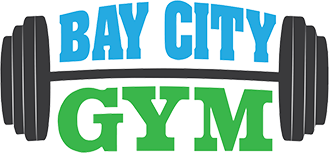Article by Chrissy Newall – Personal Trainer at Bay City Gym and owner
What causes muscle soreness after exercising?
You may have experienced pain in your muscles after you have completed an activity or exercise that is unfamiliar?
Delayed onset muscle soreness (DOMS) is the name given to this pain that is often experienced 72 hours after exercise or an out of the ordinary activity around the house such as gardening or moving firewood.
The feeling is soreness or aching in the muscle and can start out mild and become quite severe lasting several days.
Many people mistakenly describe this as ‘lactic acid’ build up although this isn’t right as lactic acid build up happens while the muscle is under load and dissipates very rapidly after the movement has been completed.
What actually happens when you overload the muscle is that tiny, microscopic tears in the muscle fibre occurs. While this sounds severe it is what causes the ‘training effect’.
When we apply load or stress to the body it triggers a tiny tear in the muscle, which requires the body’s cells to then fire into action and repair themselves. This forces the body to adapt and then repair itself in such a way that it will cope with the load better when performed next time.
Our bodies are constantly striving for homeostasis i.e. survival. The definition of Homeostasis is a self-regulating process by which biological systems maintain stability while adjusting to changing external conditions.
If no stress or load is applied to the body it will stay stable and burn just enough calories to maintain life. When we train and overload our muscles the body’s survival skills kick in and muscles repair in a stronger state and cardiovascular systems increase endurance and efficiency.
When we exercise we try and apply just enough stress to cause a training effect. Personal Trainers will recommend that you increase loads and cardio training slowly over time to help your body repair and recover efficiently enough to exercise again. This helps to avoid any harsh DOMS which may in turn put off the new exerciser.
What you can do to help DOMS is up your water intake, get plenty of sleep, move the body lightly i.e. walking and eat an adequate amount of nutritious food. But also keep training and over time it won’t be as bad.


